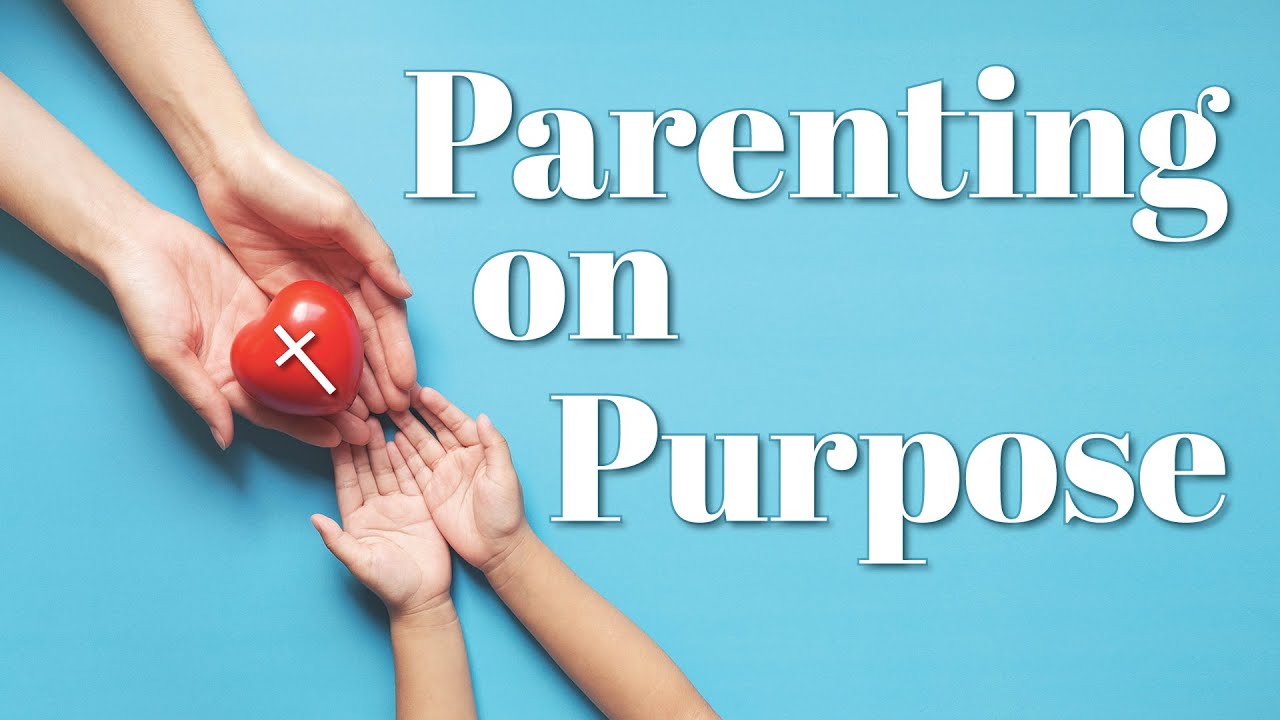
Parent on Purpose: Cultivating Intentionality in Modern Parenting
In the whirlwind of modern life, parenting often feels like a reactive exercise. We navigate tantrums, school projects, and social dramas, often feeling like we’re just trying to keep our heads above water. But what if we could shift from reactive parenting to a more proactive and intentional approach? This is where the concept of parent on purpose comes in. It’s about consciously shaping our parenting style, values, and actions to align with the kind of adults we hope our children will become. It’s not about perfection, but about deliberate choices and mindful engagement in the parenting journey.
Parenting on purpose means understanding your core values as a parent, setting clear goals for your children’s development, and consistently acting in ways that support those values and goals. This involves reflecting on your own upbringing, identifying what worked and what didn’t, and consciously choosing to emulate or reject those patterns. It’s about being present, engaged, and deliberate in your interactions with your children, rather than simply reacting to their behavior. This article explores the key principles of intentional parenting and provides practical strategies for cultivating a more purposeful approach to raising children.
Understanding the Core Principles of Intentional Parenting
At its heart, parenting on purpose is about mindful decision-making. It’s about consciously choosing how you respond to your children, rather than simply reacting out of habit or frustration. Here are some core principles to consider:
Self-Reflection and Awareness
The first step in becoming a more intentional parent is to understand yourself. What are your values? What are your strengths and weaknesses? What are your triggers? Reflect on your own childhood experiences and how they have shaped your beliefs about parenting. Understanding your own emotional landscape is crucial for responding to your children in a calm and rational manner. Consider journaling, meditation, or therapy to gain deeper self-awareness.
Defining Your Parenting Values
What values do you want to instill in your children? Honesty, kindness, resilience, creativity, independence? Identifying your core parenting values provides a framework for your decisions and actions. These values should guide your interactions with your children, your discipline strategies, and your overall approach to parenting. Write down your values and refer to them regularly to ensure you are staying true to your intentions.
Setting Clear Goals for Your Children
What kind of adults do you hope your children will become? What skills and qualities do you want them to develop? Setting clear goals provides direction and purpose to your parenting efforts. These goals should be age-appropriate and realistic, and they should align with your values. Focus on fostering emotional intelligence, critical thinking skills, and a strong sense of self-worth. Remember that the goal isn’t to mold your children into your ideal, but to support them in becoming the best versions of themselves. Parenting on purpose helps guide those goals.
Consistent and Mindful Action
Intentional parenting is not just about thinking; it’s about doing. It’s about consistently acting in ways that support your values and goals. This requires mindful attention to your interactions with your children. Be present, engaged, and deliberate in your responses. Avoid reacting out of anger or frustration. Take a moment to pause, breathe, and consider your response before acting. Consistency is key to building trust and security with your children. [See also: Positive Discipline Techniques for Toddlers]
Practical Strategies for Cultivating Intentional Parenting
Now that we’ve explored the core principles of parenting on purpose, let’s look at some practical strategies you can implement in your daily life:
Establish Family Routines and Rituals
Routines and rituals provide structure and predictability, which can reduce stress and anxiety for both parents and children. Establish consistent routines for mealtimes, bedtimes, and other daily activities. Create family rituals, such as reading together before bed, having a weekly family game night, or going for a walk in nature on Sundays. These routines and rituals provide opportunities for connection, communication, and shared experiences.
Practice Active Listening
Active listening is a powerful tool for building connection and understanding with your children. When your child is talking, give them your full attention. Make eye contact, nod your head, and ask clarifying questions. Avoid interrupting or offering unsolicited advice. Focus on understanding their perspective and validating their feelings. Active listening helps your child feel heard, understood, and valued.
Model the Behavior You Want to See
Children learn by observing and imitating their parents. If you want your children to be kind, respectful, and responsible, you must model those behaviors yourself. Be mindful of your words and actions, and strive to embody the values you want to instill in your children. Show them how to handle conflict constructively, how to express emotions in a healthy way, and how to treat others with respect. Your actions speak louder than words.
Set Boundaries with Love and Respect
Setting boundaries is essential for teaching children about responsibility, respect, and self-control. Boundaries provide structure and security, and they help children learn to navigate the world in a safe and healthy way. Set clear and consistent boundaries, and explain the reasons behind them. Enforce boundaries with love and respect, and avoid using punishment or shame. Focus on teaching your children about the consequences of their actions and helping them make better choices in the future. Parenting on purpose necessitates thoughtful boundaries.
Embrace Imperfection
No parent is perfect, and that’s okay. Embrace imperfection and forgive yourself for your mistakes. Learn from your experiences and strive to do better next time. Remember that parenting is a journey, not a destination. There will be ups and downs, successes and failures. Focus on progress, not perfection. Modeling self-compassion and resilience teaches your children valuable life lessons.
Prioritize Self-Care
You can’t pour from an empty cup. Prioritizing self-care is essential for maintaining your physical, emotional, and mental well-being. Make time for activities that nourish your soul, such as exercise, reading, spending time in nature, or connecting with friends. Get enough sleep, eat healthy foods, and practice stress-management techniques. When you take care of yourself, you are better equipped to care for your children. A key aspect of parenting on purpose is recognizing your own needs.
The Long-Term Benefits of Intentional Parenting
Parenting on purpose requires effort and commitment, but the long-term benefits are well worth the investment. Children who are raised by intentional parents are more likely to develop strong emotional intelligence, healthy self-esteem, and positive relationships. They are better equipped to navigate the challenges of life and to achieve their full potential. Furthermore, intentional parenting can strengthen the bond between parents and children, creating a more loving and supportive family environment.
By consciously shaping our parenting style, values, and actions, we can create a more fulfilling and meaningful experience for ourselves and our children. It’s about moving beyond reactive parenting and embracing a proactive and intentional approach to raising the next generation. It’s about being present, engaged, and deliberate in our interactions with our children, and about guiding them towards becoming the best versions of themselves. It truly means to parent on purpose.
Conclusion: Embracing the Journey of Intentional Parenthood
Parenting on purpose is a journey, not a destination. It’s a continuous process of self-reflection, learning, and growth. It requires effort, commitment, and a willingness to embrace imperfection. But the rewards are immeasurable. By consciously shaping our parenting style, values, and actions, we can create a more loving, supportive, and fulfilling family environment. We can raise children who are emotionally intelligent, resilient, and capable of achieving their full potential. So, take a deep breath, embrace the journey, and start parenting on purpose today.
Remember, the goal is not to be a perfect parent, but to be a present, engaged, and intentional one. By focusing on your values, setting clear goals, and consistently acting in ways that support those values and goals, you can cultivate a more purposeful and fulfilling parenting experience. And that, in turn, will benefit your children for years to come. [See also: Raising Resilient Children in a Challenging World]

